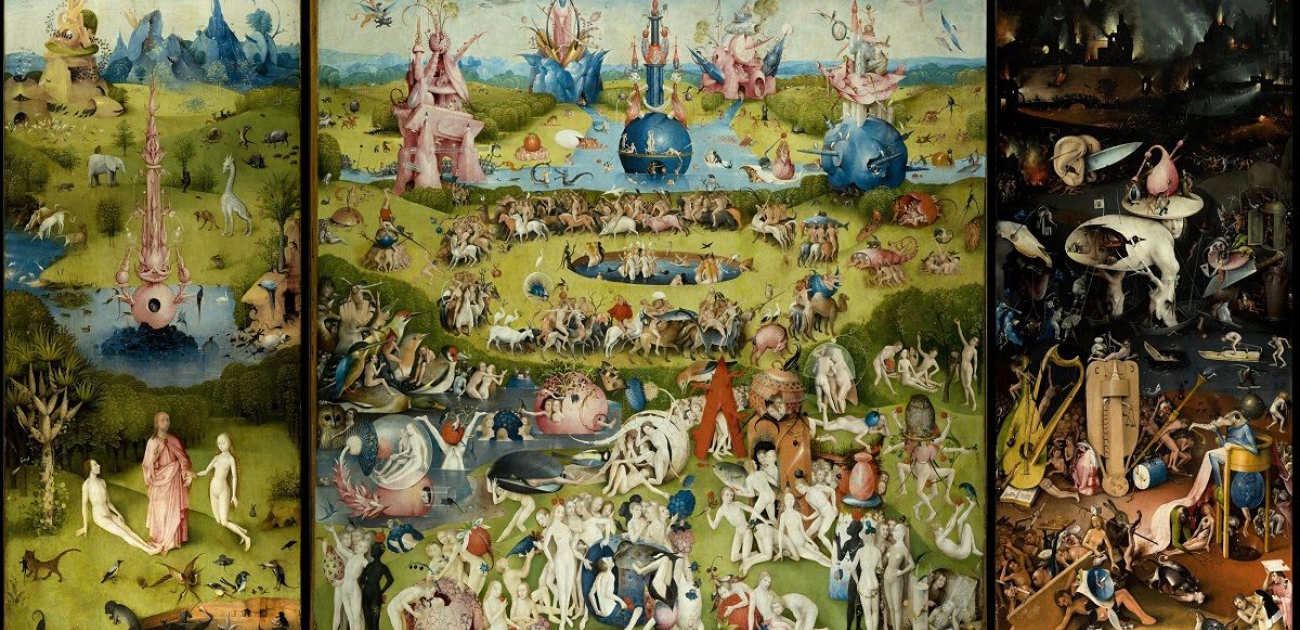Man at the Center of the World for an Integral Economy
Man has always considered himself at the center of the world with a vision of power and has always seen nature as functional to his well-being. Primitive man found a favorable environment and a warm climate, plenty of food and water. The problem of subsistence, of getting a living, did not require much time or great difficulties. The relationship with nature was therefore of friendship: the hunting and collection of the products of nature of the populations, then few in number, could not have affected the natural balance in the least. Evolution, then, contributed to man's progress: he became skilled, that is, capable of creating tools, having found the means to amplify his strengths and expand his capabilities. The feeling of dominion over nature began to assert itself, probably, with the great glaciations of the northern hemisphere, when it had to survive in a very difficult environment, in a harsh climate and with a shortage of food.
To these unfavorable conditions that determined a challenge to his survival, man responded by increasing his hunting potential - weapons and methods - and his ability to comfort: houses, fur clothing etc.
After the great glaciations, nature was still able to provide the means of subsistence through hunting and gathering, but the possibilities of invention and transformation now implemented by man began gradually to define the relationship of supremacy towards nature and the will to see power of mankind throughout its history.
The progressive empirical modification of the cultivation methods that give rise to the birth of agriculture, the discovery of fire, the domestication of animals and irrigation are fundamental stages of human expansion. These moments represent the technological basis of the great transformation, the real entry of man into history. And so in civilizations the relationship between man and nature took place according to the technological level of the resident population. At a basic technological level, the impact of man on nature has always been modest or zero, the more the level increases the more the environment is conditioned.
In the Middle Ages the Thomistic thought emerges, man is the measure of all things and man's relationship with the world of external goods is parameterized according to his social condition. The way of life, therefore, had to be adapted to the social class for which it changed in quantity and quality according to the class of belonging. At the time, two classes emerged: the nobles and the popular classes, the rich and the poor. The rich, the nobles, despised money, it was dirty like all profit-making activities, money only needed to be spent. They spent their days hunting, in the war, or on lascivious evenings or gambling. However, everyone was aware of his role in society, the craftsman and the farmer worked according to their needs and their satisfaction, neither the superfluous was produced nor desired. Their life was identified in their products and artifacts and the vision of nature was benign and the craftsmen, in particular, lived their work with the pride of the artist.
Each artifact was original and created towards perfection that was worthily to enhance the virtues of its creator. There was no anxiety or anxiety of production, the pace of economic activity was not stressful, in the midst of the Renaissance there were about 260 days of celebration per year. This is because the duration of the production period was established - as already highlighted - by two factors: by the needs and quality of the product and by the natural needs of the workers' needs.
Now after this brief historical and social philosophical excursus of the relationship between man and nature, I would like to get to the present day.
The first concerns about the state of health of the planet began to appear in the fifties of the last century: concerns about pollution and environmental degradation and the depletion of available resources came from scientific circles. The first concerns arose about man's action on the environment. On the one hand awareness of the faults produced by pollution, environmental degradation, the breakdown of natural balances - the so-called ecosystems - increased, and on the other hand, the need to recognize the intrinsic value of nature was consolidated, , the need to change people's attitudes and behaviors towards nature.
Public opinion became aware of a new ecological imperative: to act in such a way as to guarantee respect for current and future living systems. This imperative has flanked human action, many times antagonistic to consumerism. If on the one hand, in fact, there is environmental awareness, on the other there is the search for well-being, ephemeral and advertising, which determines consumerism, the expression of capitalism. A capitalism that emphasized by the media, with globalization has become "turbo capitalism". And so the company has suddenly transformed over the past thirty years. We are more and more slaves to fashion, "this disease of the human mind", as abbot Fernando Galiani called it in his famous book Della Moneta of 1750. We seek immediate well-being linked to consumption and not the future anchored in sacrifice and savings. And this is a risk, consumerism is a phenomenon that destroys resources not out of need, but out of desire. Already according to Nietzche, in the late 1800s, it was "in the time when civilization is in danger of perishing by the civilization itself". In order for this prophecy not to come true, everyone's will is needed: reconciling man and nature is the main objective of humanity. But in this current economic and social context it seems that politics is sensitive only to financial paradigms of a new current lexicon, such as the spread and economic growth of GDP, without considering, as mentioned above, that economic growth, an abstract numerical expression of well-being , is related to a consumerism that sacrifices the environment to exist. Environmental protection is a cost in the business logic of the income statement of capitalist industrial companies, its inherence and its effects on revenues are not perceived. Effects that are not immediate and are not quantified, and this is a problem of sensitivity of ethical perception, as even the lowest future costs that human society will have to bear can be considered revenues. For example, as lower medical and assistance expenses for degenerative diseases deriving from stress, pollution, late reclamation of the soil or water, or the cost that the community will have to bear for floods, floods, bradyseism, due to the maintenance degradation of the territory . Politics, therefore, has a short-sighted, short-sighted vision; instead, it should extend its gaze.
At the dawn of the third millennium, heirs of past generations, we have obligations towards future generations, we are responsible and custodians of the environment, a common heritage of mankind. The Social Doctrine of the Church has always been the bearer of this ethical imperative by trying to sensitize public opinion, politics, civil society, industry, in making its own a new mentality that leads to new lifestyles in which - as he remembered the founder of our SS John Paul II - "the search for truth, beauty and goodness and communion with other men for common growth are the elements that determine the choices of consumption, savings and investments." It is still man today the center of the world, custodian of nature and responsible administrator, who has borrowed the environment and has to pass it on to subsequent generations - as Pope Francis highlighted, in the Encyclical "LAUDATO SI '" (116. 159) - with responsibility moral to leave the joy of hope to the future. (244).
So I leave the reader to reflect on promoting the testimony of a good economic policy in doing sustainable business.
Do you want more information?
 Gianluigi Longhi
Gianluigi LonghiExpertise of promotion and innovation for the international expansion of companies

